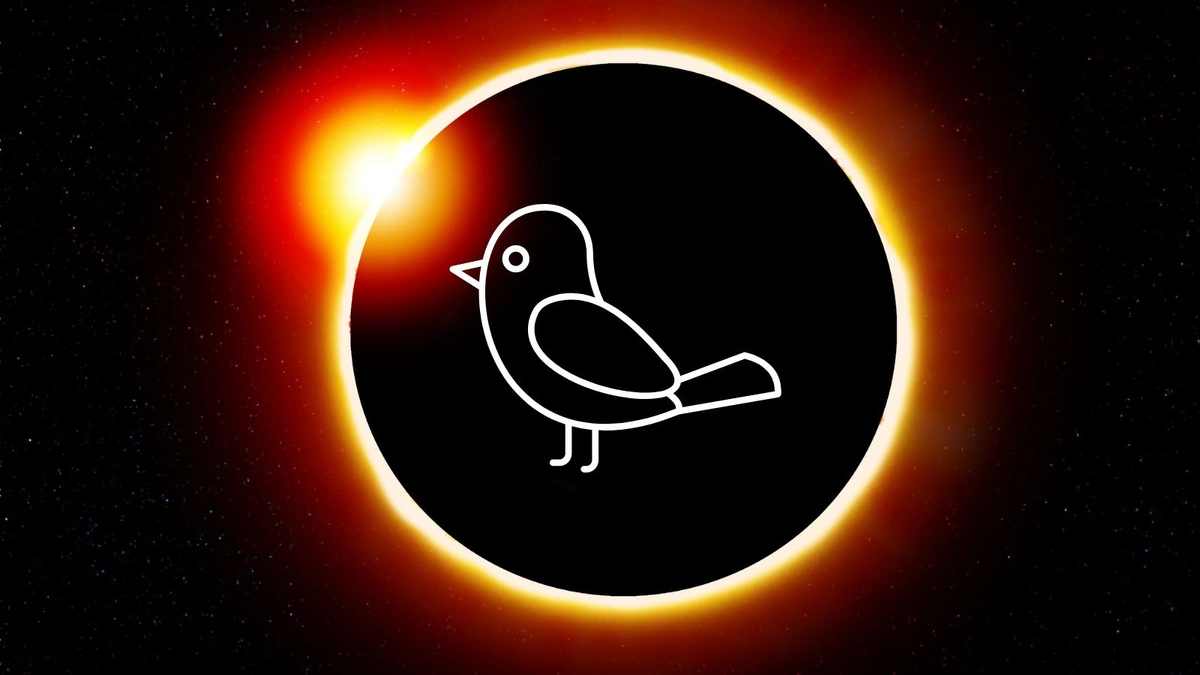Okay, so the April 2024 total solar eclipse was a big deal, right? Millions of people across North America paused to witness this incredible celestial event. But here’s the thing – it wasn’t just humans who were affected. What fascinates me is the impact this sudden darkness had on our feathered friends. Did you notice any strange bird behavior during the eclipse? It’s not just anecdotal; scientists are studying this, and what they’re finding is pretty wild.
The Science Behind the Shift | Why Eclipses Mess With Birds

Let’s be honest, birds operate on a pretty strict schedule. Their internal, or biological clocks , are finely tuned to the daily cycle of light and darkness. This rhythm dictates everything from when they wake up and start foraging to when they seek shelter for the night. A sudden, albeit brief, period of darkness like a solar eclipse throws a wrench into this perfectly timed system. So, what exactly happens?
Think of it this way: Your brain uses daylight to regulate wakefulness. Suddenly plunging into darkness would confuse you, right? The same happens to birds. They interpret the sudden dimming as an early sunset and react accordingly. According to studies, the confusion can lead to changes in flight patterns and cause them to exhibit distress.
Observed Bird Behaviors During the Eclipse | From Chirps to Silence
So, what did people actually see? Reports from across the eclipse’s path of totality reveal some interesting patterns. One of the most common observations was a sudden quieting of birdsong. As the sky darkened, many birds stopped singing, chirping, and calling. This suggests that they were preparing for night or thought the night had already started. Makes total sense, right?
But, and this is a big ‘but,’ not all birds reacted the same way. Some birds were observed engaging in typical nighttime behaviors, such as flying towards roosting sites. Others displayed agitated behavior, flying erratically or calling out as if confused or distressed. It’s almost like some got the memo that it was ‘lights out,’ while others were utterly bewildered. What fascinates me is that the solar eclipse bird behavior can vary so wildly. I initially thought this was straightforward, but then I realized birds are complex creatures!
What The Experts Say About Bird Behavior
The Cornell Lab of Ornithology, for example, conducted a study on bird behavior during the 2017 solar eclipse, and the findings were fascinating. According to theirreport, they found that the type of bird matters. Diurnal birds (active during the day) showed the most significant changes, while nocturnal birds (active at night) didn’t seem as affected. The disruption of their internal clocks is the main reason why the biological clock is disrupted in birds.
What’s even more interesting is that the duration of totality – the time the sun is completely blocked – also plays a role. The longer the period of darkness, the more pronounced the behavioral changes were. The more you look at it, the more you realize that the April 2024 eclipse has a lot of influence on how birds act. It makes you think about the implications this has on the environment.
The Implications for Bird Conservation | Why This Matters
Okay, so birds get a little confused during an eclipse. Why should we care? Well, the short-term effects might seem minor, but what about the long-term implications? The disruption of April 2024 Eclipse bird behavior can impact their feeding patterns and nesting behaviours. But this may affect migratory patterns in the long run.
The one thing you absolutely must double-check after an eclipse is the ecosystem in the area. Are birds doing okay? Because what may seem minor to us, can have a large impact to their survival.
And here’s the thing: as urban development continues to encroach on natural habitats, birds are already facing numerous challenges. Adding the stress of unpredictable events like eclipses could further strain their populations. Understanding how birds respond to these events is crucial for developing effective conservation strategies. You can check out the DNA repair capabilities of mole rats .
Tips for Birdwatchers | Observing and Documenting Eclipse Behavior
Want to contribute to our understanding of bird behavior during future eclipses? Here are a few tips:
- Observe carefully: Pay attention to the specific behaviors you witness before, during, and after the eclipse.
- Take notes: Record the date, time, location, and the species of birds you observe.
- Share your findings: Submit your observations to citizen science projects like eBird, which helps researchers track bird populations and behaviors around the world.
By participating in citizen science, you can help scientists gather valuable data and gain a deeper understanding of how solar eclipses affect our avian friends. It’s a win-win!
FAQ About Solar Eclipse Bird Behavior
Do all birds react the same way during a solar eclipse?
No, the response varies depending on the species, location, and duration of totality.
What kind of birds stop singing during the eclipse?
Mostly diurnal birds (birds active during the day) stop singing as they prepare for night.
Are birds affected by partial solar eclipses?
Yes, even partial eclipses can cause subtle changes in bird behavior, though they are often less pronounced than during a total eclipse.
Is there are risk of permanent harm?
It’s unlikely that a single eclipse would cause permanent harm. But the long-term effects of repeated disturbances are still being studied.
Where can I report my bird observations?
Online resources such as eBird are great for reporting your bird observations.
So, the next time you experience a solar eclipse, remember to look up – and also pay attention to the birds around you. You might be surprised by what you discover. As we continue to study these events, we gain a greater appreciation for the intricate connections within our natural world – and the importance of protecting it.




